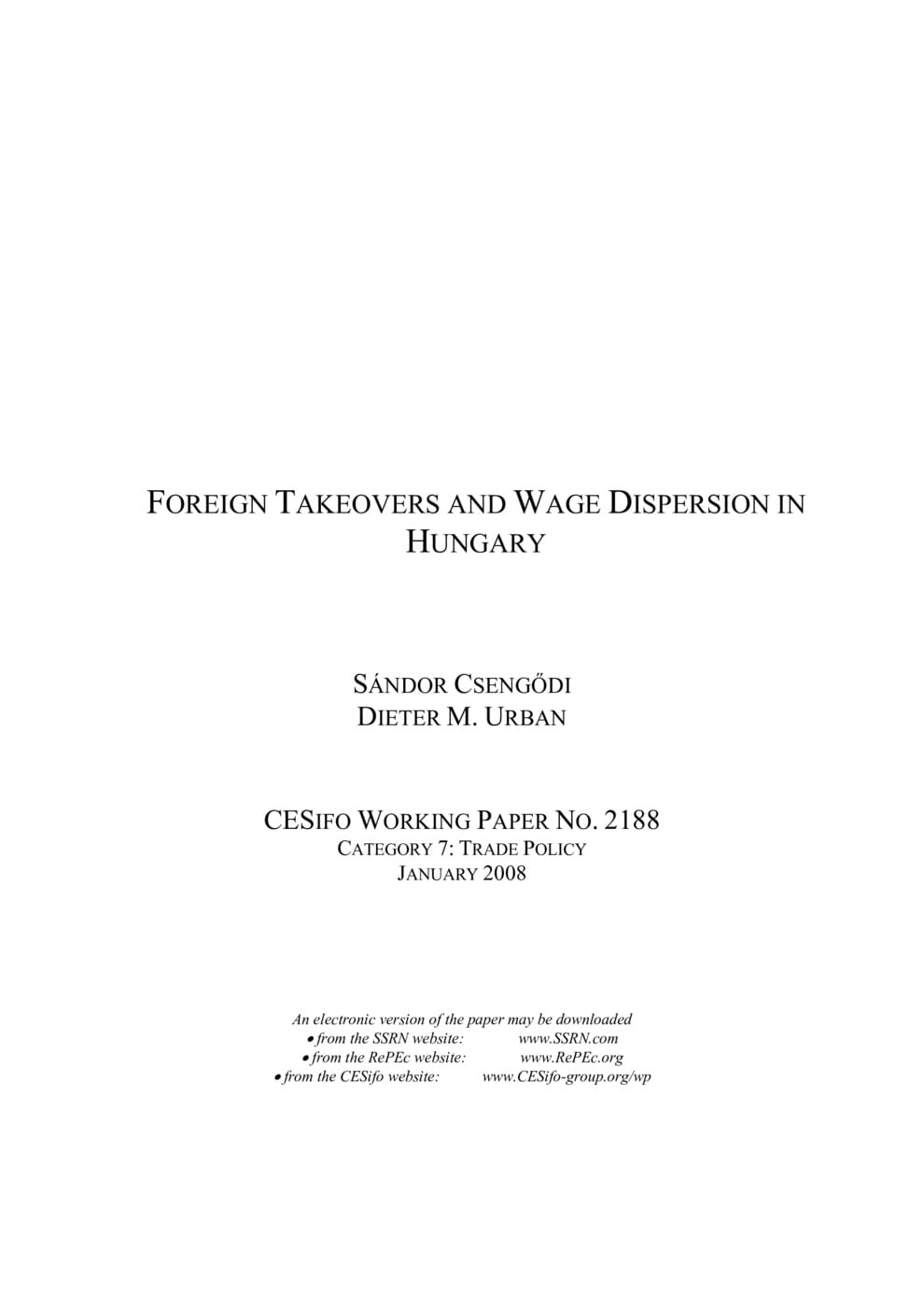Foreign Takeovers and Wage Dispersion in Hungary
CESifo, Munich, 2008
CESifo Working Paper No. 2188

This study tests FDI technology spillover models with the assumption that learning takes time against wage bargaining models by estimating the wage-premium of a foreign takeover. The technology spillover theory predicts a larger wage growth in firms taken over by foreign investors than in local firms. However, this wage growth should be confined to high-skilled workers or workers with a high level of education. Wage bargaining models also predict such a wage growth. But it should be confined to workers who are organized in trade unions, i.e. workers with low or medium level of education or skill. We apply Hungarian employee-employer matched data from 1992 until 2001, and reject the FDI technology spillover model in favor of the wage bargaining model when differentiating the wage premium by education or occupation, both by applying Mincer wage regressions and the nearest-neighbor matching method.